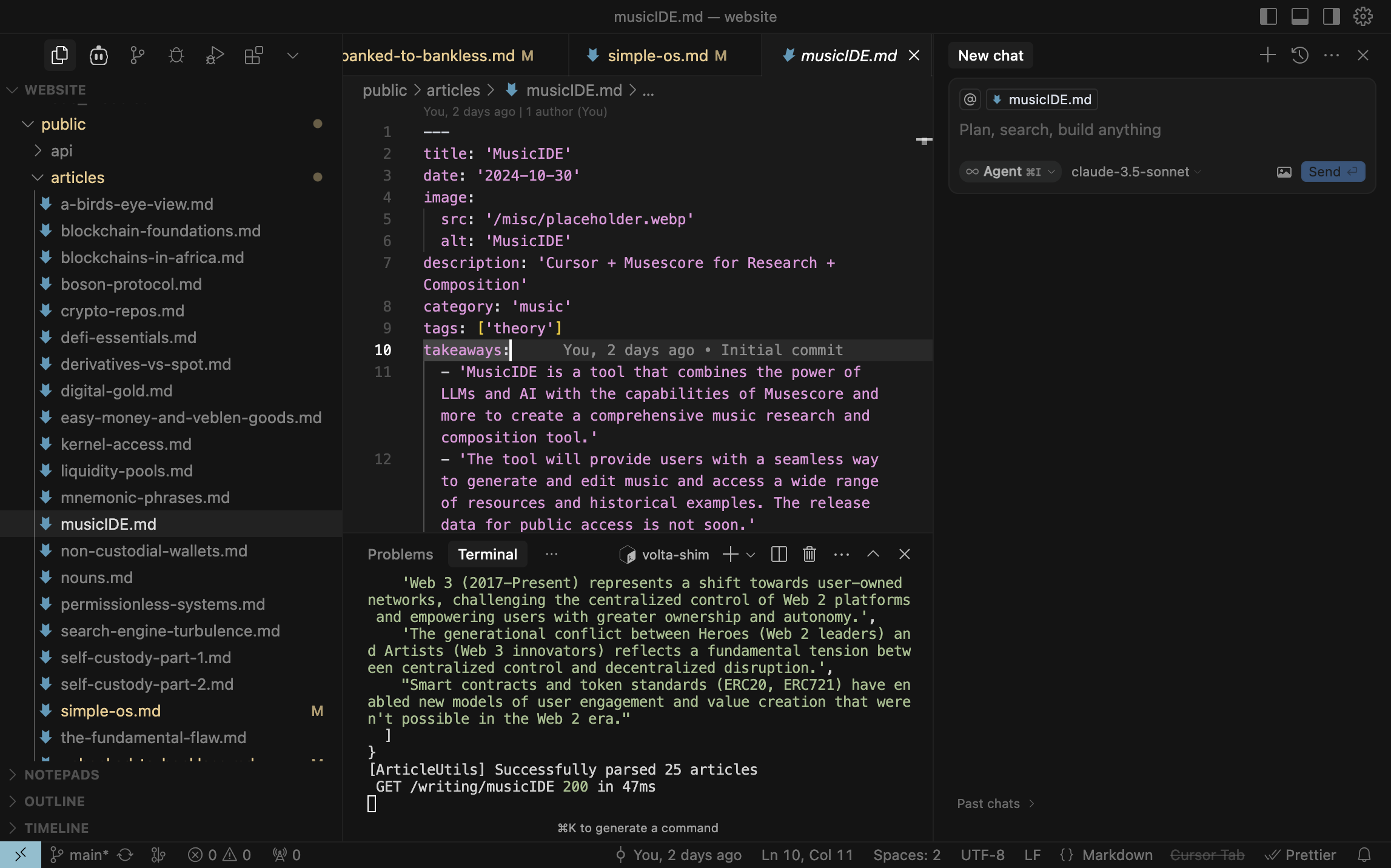MusicIDE
Cursor + MuseScore for Research + Composition

Key Takeaways
- •MusicIDE will be a tool that combines the power of LLMs and AI with the capabilities of Musescore and more, offering a comprehensive music research and composition tool.
- •The tool will provide users with a seamless way to generate and edit music and access a wide range of resources and historical examples. Public access is not expected soon.
With the rise of large language models and AI tools, one avenue of technological innovation is becoming more accessible. Success may increasingly depend not on memorization or manual computation but on the ability to guide, integrate, and creatively apply.
Notation Landscape
Traditional notation software like Sibelius is rigid and detail-heavy, requiring manual input at every step. To substitute a Neapolitan 6 chord in first inversion as the dominant chord in a symphonic score, you'd need to identify the chord structure and enter each note across the instruments individually. It's tedious on paper and becomes slow, repetitive, and ergonomically draining in notation software. Keyboard shortcuts and MIDI input help, but they only go so far. Ideas slip away in the time it takes to write them down.
This tool will recognize that you're in the key of C and generate a Db major chord with F in the bass. It needs to understand what a Neapolitan chord is, what "six" refers to, the notes in every key, and how to apply that substitution across all instruments in the score.
MusicIDE aims to change that. Like Cursor for code, the vision is to prompt the system to handle edits—automatically generating and applying changes across the score while giving you complete control to review and refine them. While it may take time before AI excels at original composition, editing based on historical patterns and theoretical conventions should become significantly easier.

Some traditionalists might call this blasphemy—and to be fair, they have a point. But this isn't traditional composition. It's more like a natural extension of the indeterminacy or curated unpredictability that composers have explored for over a century.
Generated Music?
"Generated" is the right word—though what we're building differs from tools like Suno, which can already outperform many musicians and, understandably, stir up some frustration. But the reality is: either adapt to these tools or risk falling behind. Record labels are heading in the same direction—they're just slower, partly due to less tech fluency and partly because of legal barriers. Suno, on the other hand, doesn't seem too concerned with those.
MusicIDE is more than just a generative AI wrapper. It's a power tool for composers and musicians, designed to explore deep permutations of musical concepts, reference historical examples, and help users learn through their instrument of choice. Future AR integrations and Guitar Hero–style visuals will also offer an interactive, intuitive way to practice and internalize musical ideas.
Eventually, MusicIDE will be open source, supporting plugins that enable a wide range of use cases—from virtual reality instrument training to robotic symphonies.
Applications
The overarching goal is to support music research and composition by giving individuals access to the same analytical and creative tools that history's most outstanding musicologists, composers, and performers have used.
Development is ongoing, with public access planned for a future release. The name may change.